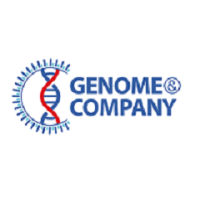预约演示
更新于:2025-05-07
PD-L1 positive Gastroesophageal junction adenocarcinoma
PD-L1阳性胃食管交界处腺癌
更新于:2025-05-07
基本信息
别名- |
简介- |
关联
2
项与 PD-L1阳性胃食管交界处腺癌 相关的药物靶点 |
作用机制 PDL1抑制剂 |
在研机构 |
原研机构 |
最高研发阶段批准上市 |
首次获批国家/地区 美国 |
首次获批日期2017-03-23 |
靶点- |
作用机制 细菌替代物 [+1] |
在研机构 |
原研机构 |
非在研适应症- |
最高研发阶段临床2期 |
首次获批国家/地区- |
首次获批日期1800-01-20 |
1
项与 PD-L1阳性胃食管交界处腺癌 相关的临床试验NCT05419362
A Phase II Study to Evaluate the Safety and the Efficacy of GEN-001 in Combination With Avelumab for Patients With PD-L1 Positive Advanced Gastric or Gastroesophageal Junction Adenocarcinoma
This is a phase II, multicenter, open-label study to evaluate the antitumor activity, efficacy and safety of GEN-001 in combination with avelumab as a third line (3L) or greater line treatment which is not received the Standard of Care (SOC) for patients with PD-L1 positive advanced GC/Gastroesophageal Junction Adenocarcinoma who are not received cancer immunotherapy regimens as mono or combination therapy.
开始日期2022-04-07 |
申办/合作机构  Genome & Co. Genome & Co. [+1] |
100 项与 PD-L1阳性胃食管交界处腺癌 相关的临床结果
登录后查看更多信息
100 项与 PD-L1阳性胃食管交界处腺癌 相关的转化医学
登录后查看更多信息
0 项与 PD-L1阳性胃食管交界处腺癌 相关的专利(医药)
登录后查看更多信息
10
项与 PD-L1阳性胃食管交界处腺癌 相关的文献(医药)2024-06-02·Expert Review of Gastroenterology & Hepatology
Cost-effectiveness of tislelizumab plus chemotherapy vs chemotherapy as first-line treatment of PD-L1 positive advanced gastric or gastroesophageal junction adenocarcinoma from a Chinese perspective
Article
作者: Wan, Li ; Zhang, Jiangyan ; Li, Wei
2022-08-01·Cancer Science
Phase IIb study of pembrolizumab combined with S‐1 + oxaliplatin or S‐1 + cisplatin as first‐line chemotherapy for gastric cancer
Article
作者: Tsushima, Takahiro ; Han, Shirong ; Hosaka, Hisashi ; Takami, Tomoko ; Komine, Keigo ; Negoro, Yuji ; Yasui, Hisateru ; Oshima, Takashi ; Sakai, Daisuke ; Tsuda, Masahiro ; Omuro, Yasushi ; Shitara, Kohei ; Amagai, Kenji ; Esaki, Taito ; Minashi, Keiko ; Kato, Ken ; Nishina, Tomohiro ; Ishido, Kenji ; Kawakami, Hisato ; Yamaguchi, Kensei ; Sugimoto, Naotoshi ; Iwagami, Shiroh ; Shiratori, Shinichi
2022-01-01·Gastric Cancer1区 · 医学
Pembrolizumab versus paclitaxel for previously treated PD-L1-positive advanced gastric or gastroesophageal junction cancer: 2-year update of the randomized phase 3 KEYNOTE-061 trial
1区 · 医学
Article
作者: Shitara, Kohei ; Özgüroğlu, Mustafa ; Bhagia, Pooja ; Fuchs, Charles S ; Ryu, Min-Hee ; Di Bartolomeo, Maria ; Mandala, Mario ; Thuss-Patience, Peter ; Caglevic, Christian ; Bang, Yung-Jue ; Chung, Hyun C ; Ohtsu, Atsushi ; Muro, Kei ; Fornaro, Lorenzo ; Chau, Ian ; Elme, Anneli ; Olesinski, Tomasz ; Wang, Anran ; Shih, Chie-Schin ; Van Cutsem, Eric
1
项与 PD-L1阳性胃食管交界处腺癌 相关的新闻(医药)2017-12-14
Merck’s Keytruda came up short in a pivotal Phase III trial as a second-line treatment for patients with advanced gastricadenocarcinoma or GEJ adenocarcinoma.
Three months after the
U.S. Food and Drug Administration
gave
Merck
’s Keytruda the
go-ahead for two types of gastric cancer
,
the drug
came up short in a pivotal Phase III trial
as a second-line treatment for patients with advanced gastric or gastroesophageal junction (GEJ) adenocarcinoma.
Merck said Keytruda, a PD-1 inhibitor, failed to meet its primary endpoint of overall survival. Not only that, but the drug failed to show any statistical significance in progression free survival, Merck announced late Thursday.
The results of the Phase III are disappointing to Merck. The company had been seeking approval to use Keytruda as a second-line drug in gastric cancer. In September, it was approved as a third-line treatment for previously treated patients with recurrent locally advanced or metastatic gastric or gastroesophageal junction cancer whose tumors express PD-L1 with disease progression on or after two or more prior lines of therapy including fluoropyrimidine- and platinum-containing chemotherapy and if appropriate, HER2/neu-targeted therapy.
In the Phase III Keynote-061 trial, Keytruda was being investigated as a monotherapy treatment versus
Celgene
’s Abraxane (paclitaxel) in patients with advanced gastric or GEJ adenocarcinoma whose disease progressed after first-line treatment with platinum and fluoropyrimidine doublet therapy.
Although Keytruda failed the Phase III Keynote-061 trial, the company said it will continue to evaluate the checkpoint inhibitor in other trials, including Keynote-062. That trial is a Phase III evaluating Keytruda as a monotherapy or in combination with chemotherapy as a first-line treatment for patients with PD-L1 positive advanced gastric or gastroesophageal junction cancer. Additionally, the company said Keynote-585, a Phase III trial studying Keytruda in combination with chemotherapy in a neoadjuvant/adjuvant setting, will also be a key evaluation of the drug.
“We remain committed to the continued study of Keytruda for gastric cancers and finding new options for patients facing this difficult-to-treat cancer type across various treatment settings,”
Merck Research Laboratories
Chief Medical Officer
Roy Baynes
, said in a statement.
Gastric cancer is a slowly progressing disease, developing over many years. There are approximately 952,000 cases of gastric cancer diagnosed annually across the globe. Gastric cancer is estimated to cause 723,000 annual deaths worldwide. It is estimated that in 2017, more than 10,000 people will die from gastric cancer in the U.S. alone, Merck said.
Baynes said the company will share fill results from the Keynote-061 trial at a later conference. He said the trial data will provide the medical community with “important information about how patients with gastric cancer whose tumors express PD-L1 respond to treatment.”
Keytruda has been approved by the FDA to treat several types of cancer, including lung cancer, bladder cancer, melanoma and refractory classical Hodgkin lymphoma cancer. While the drug has won a number of approvals, it has also experienced a number of setbacks. In July, it
failed to meet endpoints
in a Phase III head and neck cancer study. Earlier in July, the
FDA placed a clinical hold
on three clinical trials using Keytruda following the report of patient deaths in June. Merck said its Keynote-183, Keynote-185 and Keynote-023 trials were halted by the FDA after the Data Monitoring Committee discovered more patient deaths were observed in the Keytruda arm.
临床3期上市批准临床结果加速审批
分析
对领域进行一次全面的分析。
登录
或

Eureka LS:
全新生物医药AI Agent 覆盖科研全链路,让突破性发现快人一步
立即开始免费试用!
智慧芽新药情报库是智慧芽专为生命科学人士构建的基于AI的创新药情报平台,助您全方位提升您的研发与决策效率。
立即开始数据试用!
智慧芽新药库数据也通过智慧芽数据服务平台,以API或者数据包形式对外开放,助您更加充分利用智慧芽新药情报信息。
生物序列数据库
生物药研发创新
免费使用
化学结构数据库
小分子化药研发创新
免费使用
